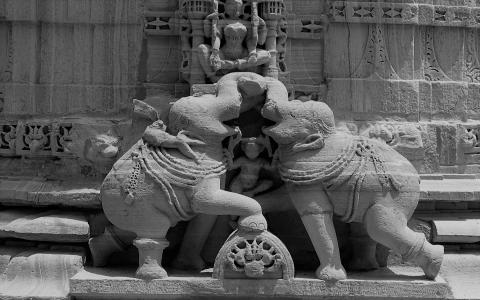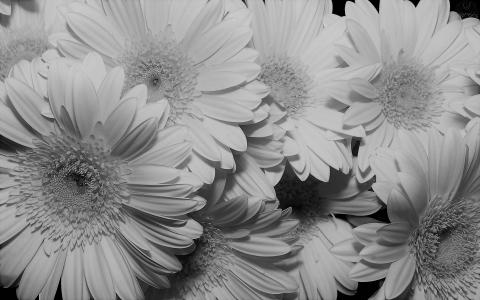
“Bamboo doesn’t bend. Sun is the real thief”:
जनश्रुतिं यदाहिरीनिवेदकोऽह्नि नान्नभा-
गिति प्रमार्ष्टुमागतः सभोजनो वनं प्रगे।
निधाय भाजनं नते तृणध्वजेऽलपत्ततो
न मस्करो नमस्करोत्यहस्करो हि तस्करः॥[1]
Desirous to disprove the popular belief among musicians that one will be without food if he sings the rāga Āhiri during day, a smart chap went to a forest in the early hours of the day, hung his food basket on a leaning bamboo tree and started singing...

“A male horse gives birth to foals”:
जानेऽहं घनसलिलाकरस्य गर्भे
जीवालिः प्रविलसतीत्यनूह्यरीतिः।
तत्रैषाऽद्भुतघटनाऽपि सत्यमेव
ह्यश्वोऽसौ निजतनयान् स्वयं प्रसूते॥[1]
I know that the ocean is home to numerous intriguing creatures. In it, a surprising truth awaits: a seahorse gives birth to foals.
The solution is a novel one in that it is based on a biological fact.
“A child witnessed its own birth”:
कंसादिदैत्यशमनाय कृतावतारः
कारागृहे शिशुतया वसुदे...

“Crescent moon appears on Śiva’s neck”:
उमानर्मविलासोद्यन्नखरक्षतहेतुना।
ग्रीवायामर्धचन्द्रोऽसौ चन्द्रचूडस्य दृश्यते॥[1]
Caught in throes of love, Umā adorned her husband with her nail-mark. It appears like the crescent moon on Śiva’s neck.
The challenge has taken up two whole lines, necessitating the solution to be pithy. Fulfilling this requirement admirably, the poet has composed a single long compound as the solution. The beauty of the...

“Sun arose in the West and moon in East”:
“धातर्मेरुमहीध्रलङ्घनधिया विन्ध्याद्रिणा सर्वतो
व्याप्तं व्योमतलं दिवेति च निशेत्यस्तं प्रतीतिर्गता”।
दूतेनैवमभाषि “सत्यमुत नो” “सत्यं, गते वासरे
प्रातः पश्चिमपर्वते दिनमणिः पूर्वाचले चन्द्रमाः”॥[1]
“O Creator, ambitious to surpass the divine mount Meru, this wretched Vindhya is growing taller by the second, eclipsing the entire sky. We have lost the distinction between day and night.” When a messenger...

“Kālidāsa composed poems in Kannada”:
वाणीवीणागुणरणनचिन्माधुरीमोदयुक्त्या
गौरीशर्वाद्वयनयजयप्रीतिसंस्फूर्तिशक्त्या।
देशस्यास्य प्रसृमरकलाशास्त्रविज्ञानरक्त्या
कर्णाटोक्त्या कवनमकरोत् कालिदासः कवीन्द्रः॥[1]
Attuning his words to the lilting melody of Sarasvatī’s lute, being inspired by the unalloyed love of the inseparable couple Śiva and Pārvatī, and enriching the all-round culture of our country, Kālidāsa composed his poems in Karṇāṭa-bhāṣā....

There is another variety of poetic challenges in which every foot of a verse is composed by a different poet. The one who composes the first line has the responsibility to provide enough room for other poets to develop on the idea. Metrical feet should ideally grow in complexity and culminate in the fourth line. Doubtless, all four lines should be self-complete, and the verse, taken as a whole, should appear as a single unit. We provide a couple...

The following two verses are solutions to a single challenge that posits Viṣṇu is Śiva:
कपाली च कलापी च शिरसा भाति योऽवतात्।
स देहार्धसमासक्तकेशवश्चन्द्रशेखरः॥ (Shankar Rajaraman)
May Śiva who wears a skull as his crest-jewel and Kṛṣṇa who wears peacock feather in his diadem protect us in the form of Hari-hara. In this undivided manner, Viṣṇu is indeed Candra-śekhara.
रोदसीसङ्क्रमे काले वर्धमानस्तु वामनः।
क्रमेण कमनीयोऽभूत् केशवश्चन्द्रशेखरः॥ (R...

A note about the translation of verses:
In translating Sanskrit into English, we had to chart our course through a thoroughly challenging terrain. The reason for this is not hard to seek: the two languages have widely differing modalities of structure and substance. Sanskrit bears a stark resemblance with gold: it is naturally radiant and eminently malleable. And in translating it into English—in trying to fashion ornaments of it—we could not...

Introduction
Problems form an inescapable passage in every person’s life. However much one tries to avoid them, the truth is that they remain to be experienced, understood and at times, overcome. Banking on a healthy mixture of curiosity and competence, inspiration and imagination, reasoning and resources, luck and levelheadedness, man solves problems, which span the entire gamut of his existence and appear in various forms such as social,...
